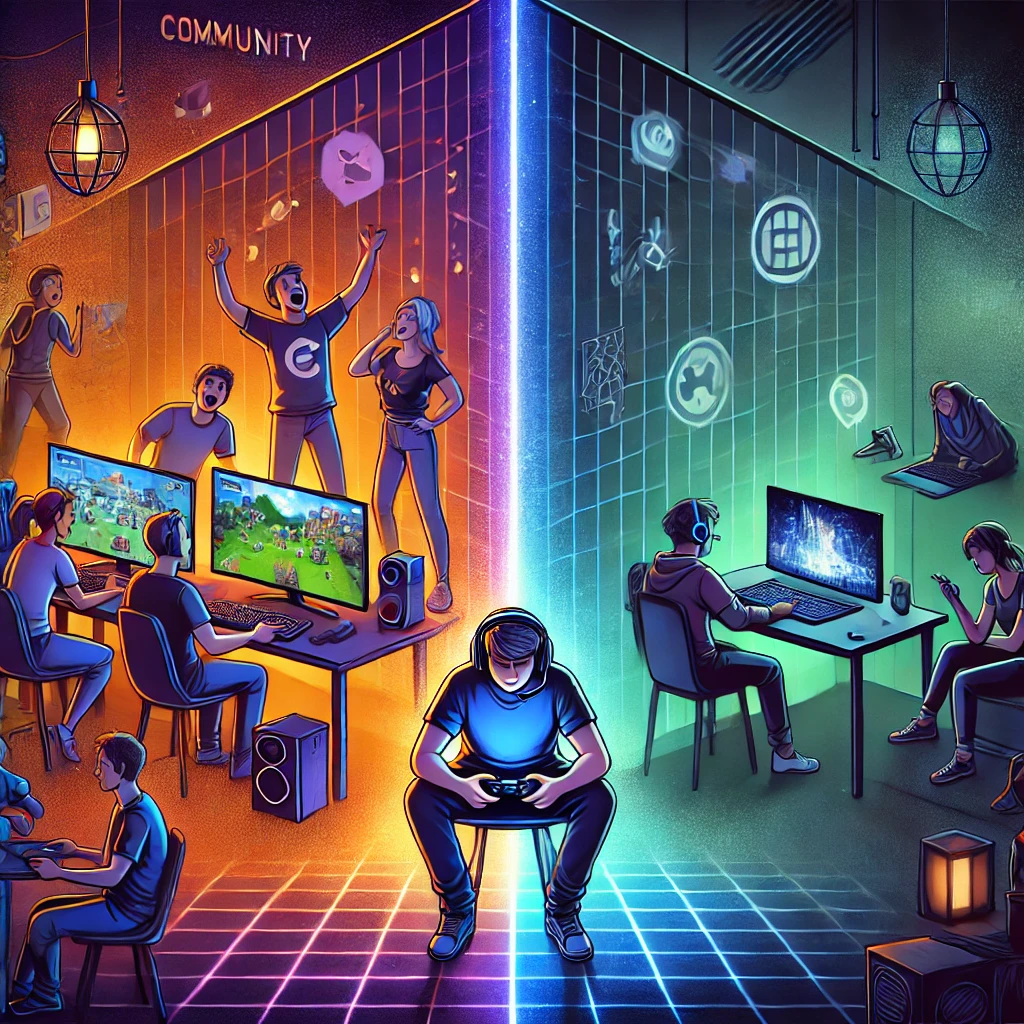The Social Impact of Online Gaming: Community Building or Isolation?
Online gaming has transformed into one of the most prominent forms of entertainment in the modern world, connecting millions of players across the globe. With its rise, however, comes the question: does online gaming foster community building or lead to social isolation? The answer isn’t black and white; the impact depends largely on how individuals engage with these platforms. This article explores both sides of the spectrum, analyzing the social benefits of online gaming and the potential challenges it presents.
How Online Gaming Builds Communities
One of the greatest strengths of online gaming is its ability to bring people together. From multiplayer games to massive virtual worlds, these platforms create spaces where players can collaborate, compete, and socialize.
1. Global Connections
Online gaming transcends geographical boundaries, allowing players from different parts of the world to interact. A player in the United States can form a team with someone in Japan, exchanging strategies and stories along the way. Games like Fortnite and Apex Legends have built global communities, fostering friendships that extend beyond the screen.
2. Shared Goals and Teamwork
Many online games, especially multiplayer ones, rely on teamwork to achieve objectives. Players bond over shared goals, whether it’s defeating a tough boss in World of Warcraft or strategizing for victory in League of Legends. These collaborative experiences often lead to long-lasting friendships.
3. Inclusive Spaces for Marginalized Groups
Online gaming communities have also become safe spaces for marginalized groups. For example, LGBTQ+ gamers often find acceptance and understanding in gaming circles that celebrate diversity. Platforms like Discord and in-game chat systems offer opportunities to connect with like-minded individuals.
4. Events and Competitions
Gaming conventions, tournaments, and eSports events serve as hubs for social interaction. These gatherings bring online relationships into the real world, solidifying connections and building a sense of belonging.
The Isolation Debate: When Gaming Disconnects
While online gaming has clear social benefits, it can also contribute to feelings of isolation under certain circumstances. For some, the immersive nature of gaming may replace real-world interactions, leading to potential challenges.
1. Overreliance on Virtual Worlds
For players who struggle with social anxiety or loneliness, gaming can provide a comforting escape. However, an overreliance on virtual worlds may hinder their ability to form meaningful connections offline. Spending hours in front of a screen can sometimes exacerbate feelings of isolation rather than alleviate them.
2. Toxic Gaming Communities
Not all gaming communities are positive or supportive. Toxic behavior, such as harassment, bullying, and trolling, can alienate players and discourage social interaction. Games with competitive environments, like Call of Duty or Valorant, often report higher levels of toxic behavior, which can detract from the community-building aspect.
3. Impact on Real-World Relationships
Excessive gaming can strain real-world relationships with family and friends. A player who prioritizes gaming over face-to-face interactions might unintentionally create distance between themselves and their loved ones.
4. The Digital Divide
While gaming fosters global connections, not everyone has access to the necessary technology or stable internet. This digital divide can exclude certain populations, limiting the inclusivity of online gaming communities.
Balancing Community and Isolation
The social impact of online gaming ultimately depends on how players manage their gaming habits and interactions. Here are some tips to strike a healthy balance:
1. Set Boundaries
Establish limits on gaming time to ensure it doesn’t interfere with offline relationships or responsibilities. Taking regular breaks helps maintain a healthy balance between virtual and real-world interactions.
2. Seek Positive Communities
Choose games and platforms known for fostering supportive and inclusive environments. Look for groups that align with your values and interests to create meaningful connections.
3. Address Toxic Behavior
Report toxic behavior and avoid engaging with negative players. Many games now offer tools to block or mute disruptive individuals, ensuring a more enjoyable experience.
4. Combine Gaming with Real-Life Activities
Consider combining your love for gaming with real-world activities, such as attending conventions, joining local gaming clubs, or participating in LAN parties. These events bridge the gap between online and offline interactions.
Examples of Positive Social Impact in Gaming
- eSports Teams and Communities Competitive gaming has given rise to professional eSports teams, where players work together to achieve success. These teams often foster a sense of camaraderie, discipline, and mutual respect.
- Charity Streams Many gamers use platforms like Twitch and YouTube to host charity streams, raising money for causes they care about. These events unite players and viewers for a greater purpose, demonstrating the positive potential of gaming communities.
- Mental Health Awareness Some online gaming platforms actively promote mental health awareness. Games like Hellblade: Senua’s Sacrifice tackle mental health themes, encouraging players to engage in meaningful conversations about their struggles.
The Future of Social Interaction in Online Gaming
As technology evolves, the potential for online gaming to shape social interactions grows. Virtual reality (VR) is already revolutionizing the gaming experience, allowing players to interact in more immersive and lifelike ways. Future advancements in artificial intelligence and augmented reality could further enhance the social aspects of gaming.
Additionally, game developers are increasingly prioritizing inclusivity and player well-being. Features like robust moderation tools, community guidelines, and mental health support systems aim to create healthier gaming environments.
Conclusion
Online gaming is a double-edged sword when it comes to social impact. On one hand, it offers unparalleled opportunities for community building, global connections, and shared experiences. On the other, it has the potential to isolate players if not approached mindfully.
The key lies in balance. By fostering positive interactions and managing gaming habits, players can enjoy the social benefits of online gaming while minimizing its challenges. As the industry continues to grow and adapt, it has the power to become a force for connection, inclusivity, and meaningful relationships in both the virtual and real worlds.
